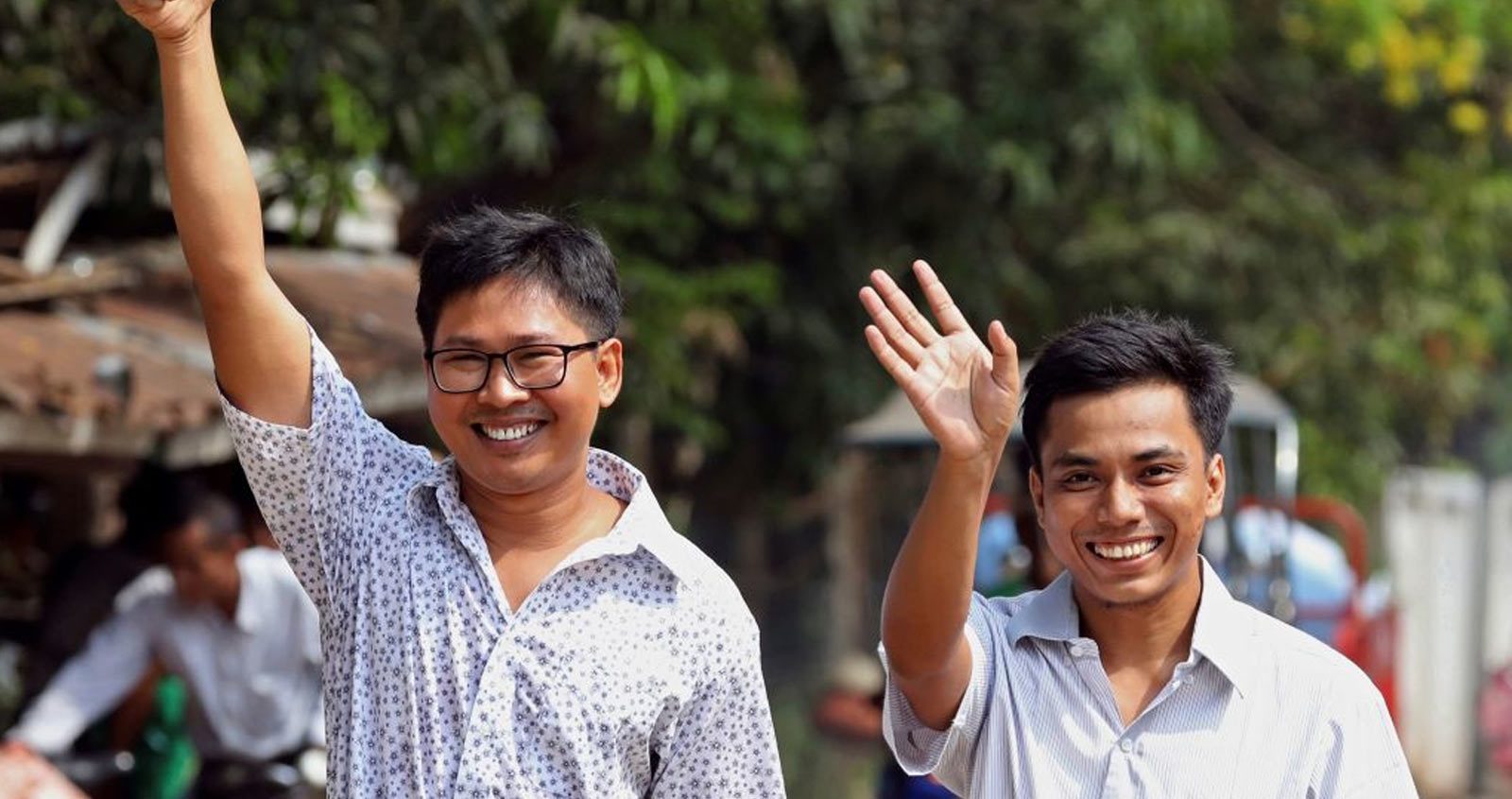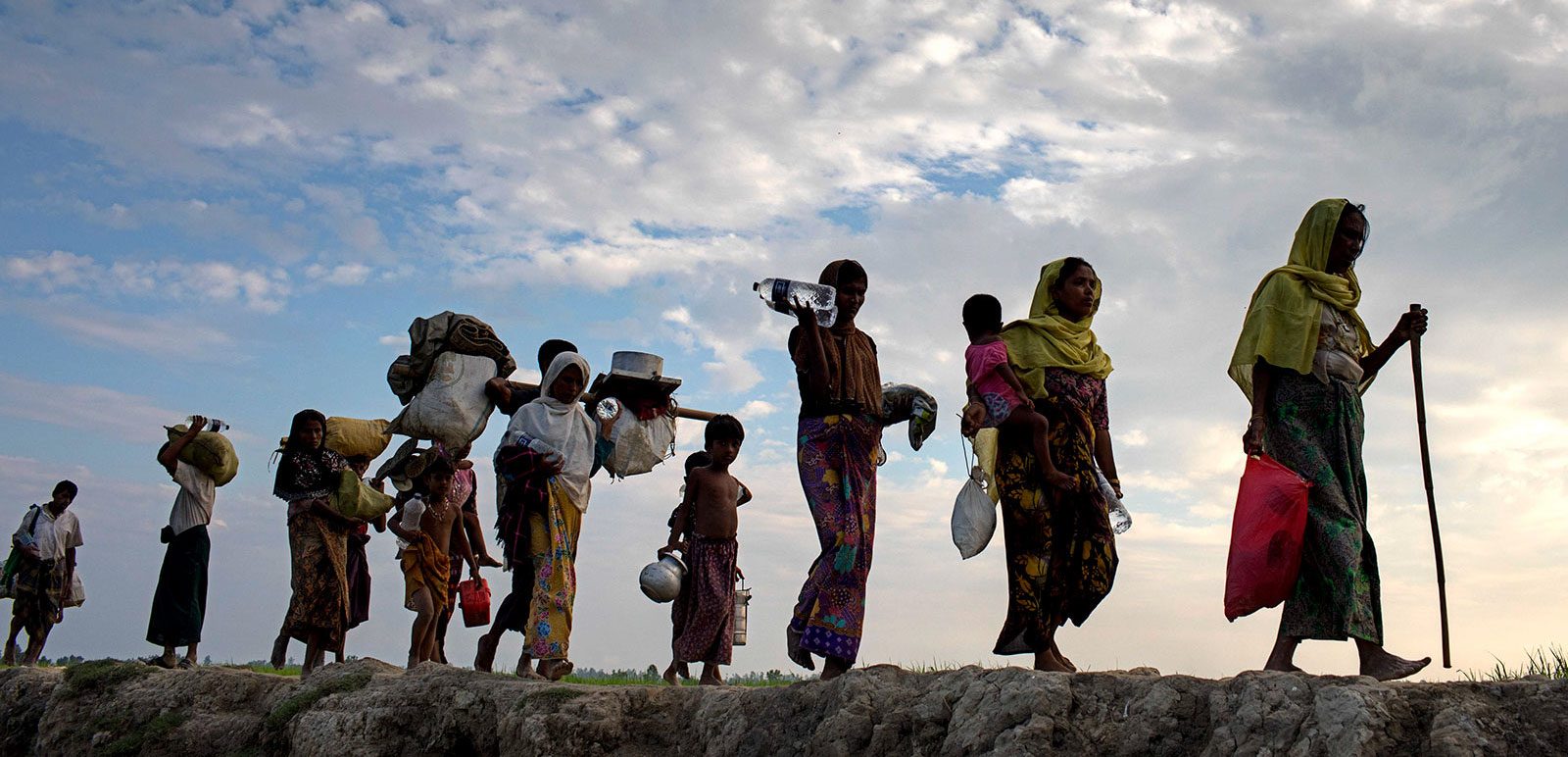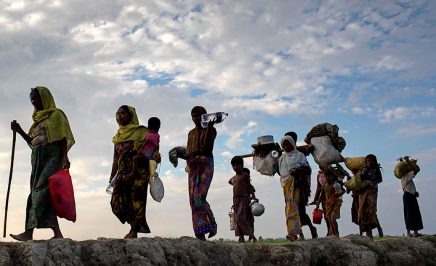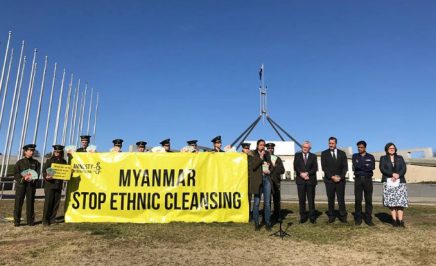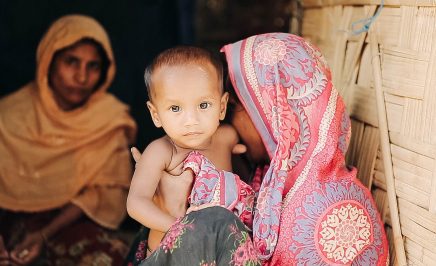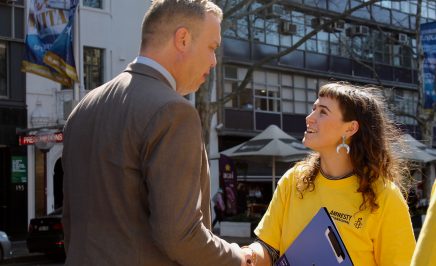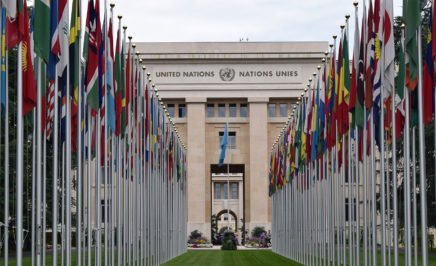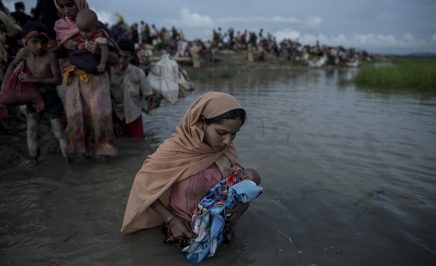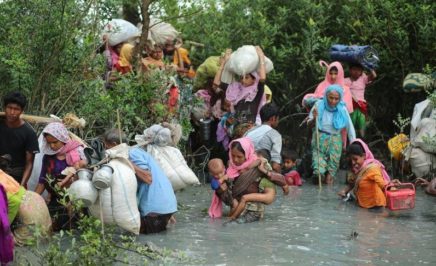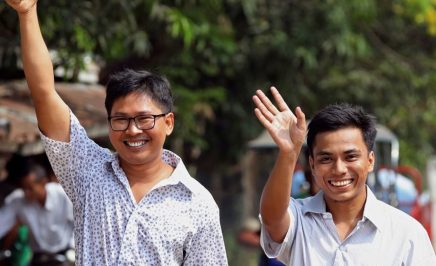In brief
In August 2017 the Myanmar military launched a campaign of ethnic cleansing against the Rohingya people.
The issue in depth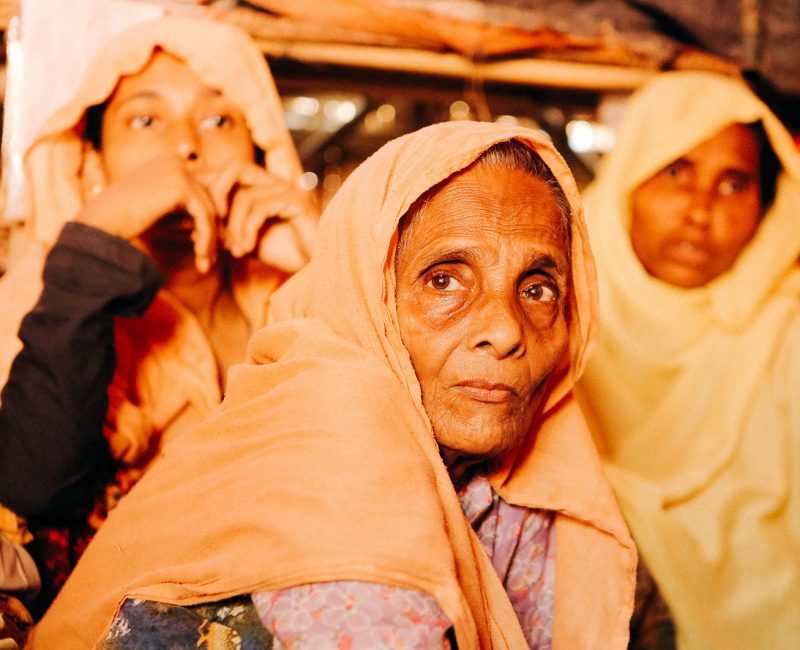
The Issue In Depth
Everything you need to know
Who are the Rohingya?
The Rohingya are a predominantly Muslim ethnic minority. Though they have lived in Myanmar for generations, the Myanmar government insists that all Rohingyas are illegal immigrants from Bangladesh.
In Myanmar, a system of institutionalised discrimination and segregation severely restricts the human rights of Rohingya people, and amounts to an apartheid state. The Myanmar government has prosecuted and systematically discriminated against them for decades, denying them citizenship, education, and basic human rights.
Ethnic cleansing and crimes against humanity
In August 2017 the Myanmar military responded to attacks by a Rohingya armed group by unleashing a wave of violence against ordinary men, women and children.
Thousands of Rohingya people have died or lost their homes in a systematic campaign of ethnic cleansing. A UN report of the Independent International Fact-Finding Mission on Mynamar released in August 2018 stated that military leaders in the country must face charges of genocide.
Close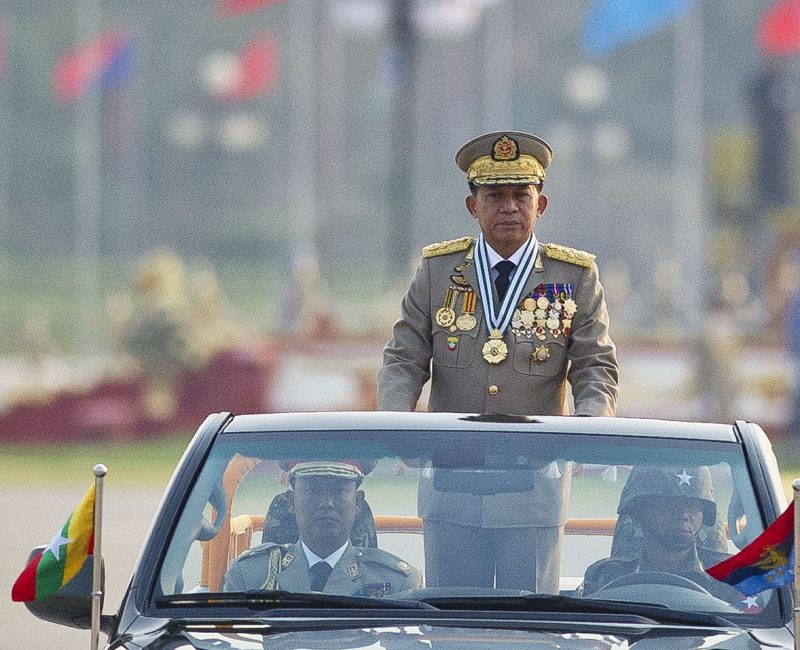
Who is responsible?
The Myanmar military's ethnic cleansing campaign against the Rohingyaa people has been relentless and systematic.
Read MoreCrimes against humanity
Our research shows the grave crimes committed against the Rohingya people were not the actions of a few rogue soldiers or units, but part of a tightly controlled operation, involving members of the military at all levels.
Responsibility for these crimes extends to the very top of the chain of command – so too must justice and accountability.
The Rohingya still living in Rakhine State do so under an apartheid state and continue to face systematic denial of their rights.
The US and a number of countries in the European Union have taken steps to sanction senior military leaders, while the UK has cut ties all together.
It’s Australia’s turn to take a stand.
Sexual violence
Thousands of Rohingya women in Bangladesh’s refugee camps are the survivors of a campaign of systematic sexual violence by the Myanmar military.
They don’t have access to the help they desperately need because the international community has failed to fund adequate services. These women need access to psychological and social support, as well as sexual and reproductive health care, so they can rebuild the lives they deserve.
The Australian government can provide funding through the humanitarian program to ensure survivors of sexual violence have access to psychosocial support and sexual and reproductive health services.
Survivors of the Myanmar military’s crimes have no access to justice. Myanmar’s justice system fails consistently to prosecute the perpetrators of crimes, and impunity for human rights violations is rife. These crimes continue today.
The brutal crimes of the Myanmar military must be referred to the International Criminal Court and the perpetrators held to account. As a member of the Human Rights Council, the Australian Government has the power to put these crimes on the international agenda.
CloseOur work on the issue
In October 2023, with the support of Amnesty International, Craig Foster AM was able to visit Cox’s Bazar and deliver a report on the situation and living conditions for Rohingya refugees.
Read More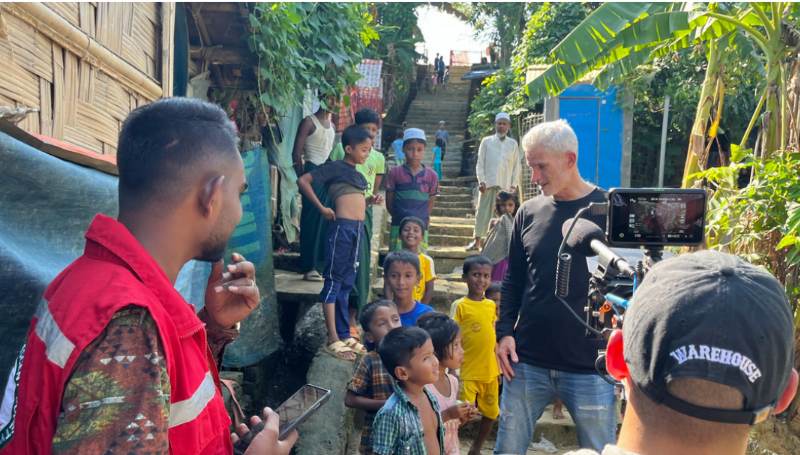
“Late last year I travelled to Cox’s Bazar to see firsthand the situation facing nearly one million Rohingya refugees and to take their stories to decision-makers in Australia on their behalf”
says Craig Foster AM, Former Socceroo and Amnesty International Australia Ambassador.
Background
Due to the violent actions of the Myanmar military, more than one million Rohingya refugees were forced to evacuate to Bangladesh. They currently reside in Cox’s Bazar, the largest refugee camp in the world.
The Rohingya remain stateless, and returning to their homes is not safe under the military rule in Myanmar. Even though they are forced to remain in Bangladesh for the foreseeable future, the conditions in the camp are inhumane, with international aid reducing to levels that don’t provide for essential needs.
The vast majority of Rohingya in Bangladesh are not formally recognised by Bangladesh as refugees, and are subjected to live in temporary shelters, unable to lawfully work, and have limited access to education.
Conditions
The camps stretch across 27 square kilometres, made up of small, makeshift bamboo and tarpaulin shelters that leak in the rain and keep heat inside when it’s hot. Even though the area is well known for its cyclonic events, the Rohingya are denied access to proper construction materials. There are approximately 200,000 families with over 500,000 children living in the camps, many not having any experience of life in their homeland.
Roads aren’t paved but constructed with bricks so they can be easily removed once the Rohingya ‘leave’. Fencing surrounds the camp, lined with barbed wire to trap and keep the Rohingya people from leaving. Desperate conditions have led to the rise of criminal groups within the camps which pose a threat to safety.
Access to food and healthcare
A lack of resources has led to terrible living conditions which include malnutrition, disease and the full implications of human desperation. Following outbreaks of cholera and other diseases, the current outbreak of scabies is the largest the world has ever seen with over half a million people impacted.
Access to food is scarce, and the Rohingya are only given a budget of $10USD per person for the bare essentials such as rice and grain, having to forgo meat and other foods.
Close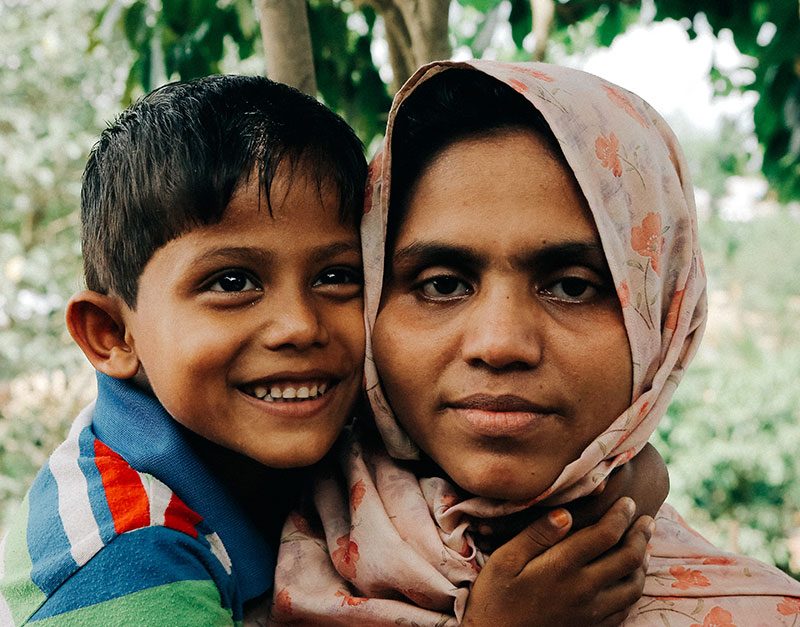
What needs to happen
Beyond humanitarian aid and diplomatic efforts, resettlement is also an option for vulnerable cases. Bangladesh suspended resettlement in 2010, but since 2022 have restarted this for a small cohort who are at extreme risk. As this door has opened, the international community now needs to step up and provide solutions.
Read MoreAustralia can support Bangladesh by establishing a transparent and targeted quota for the Rohingya in our Humanitarian Program and by expanding complementary pathways, including by ensuring that Australia’s refugee sponsorship programs are additional to Australia’s official program.
Australia can do more
Beyond humanitarian aid and diplomatic efforts, resettlement is also an option for vulnerable cases. Bangladesh suspended resettlement in 2010, but since 2022 has restarted this for a small cohort who are at extreme risk. As this door has opened, the international community now needs to step up and provide solutions. Australia can support Bangladesh by establishing a transparent and targeted quota for the Rohingya in our Humanitarian Program and by expanding complementary pathways, including by ensuring that Australia’s refugee sponsorship programs are additional to Australia’s official program.
We want to see the Australian Government:
- Fund services to support women who have survived sexual violence
- Push for accountability and justice for crimes against humanity committed against the Rohingya people.
We urge the Australian Government to:
- Increase the Humanitarian Program to 40,000 places per year (30,000 under the government program and 10,000 under community sponsorship), with the vast majority under the government program being visa subclass 200 (UNHCR referred) refugees
- Establish a targeted quota for Rohingya refugees from Myanmar, while taking a leading role in resettling Rohingya refugees out of Bangladesh.
Take Action Now
Our wins
